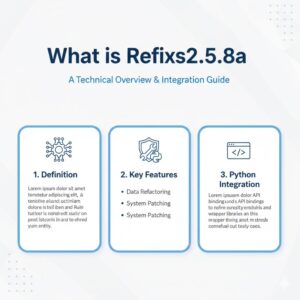
Lync Conf Mods
In the digital workplace, efficient and secure communication is mission-critical. Although cloud-native platforms like Microsoft Teams dominate today’s collaboration landscape, many organizations still rely on legacy solutions like Microsoft Lync and Skype for Business. This continued use is especially common in highly regulated industries and global enterprises with complex IT infrastructure.
In this context, the term “lync conf mods” (short for Lync conferencing modifications) refers to a set of custom configurations, scripts, add-ons, and policies designed to enhance the functionality, performance, and security of Microsoft Lync conferencing systems.
Whether you’re maintaining a hybrid environment or transitioning to Teams, understanding lync conf mods is essential for ensuring continuity, compliance, and a high-quality user experience.
What Are Lync Conf Mods?
The phrase lync conf mods is a shorthand for modifications applied to Microsoft Lync’s conferencing features, which may include:
- Server-side configurations
- Custom PowerShell scripts
- Policy adjustments
- Third-party integrations
- Administrative tools
- Feature enhancements
Let’s break down the terminology:
- Lync: Microsoft’s former unified communication platform (predecessor to Skype for Business and Microsoft Teams)
- Conf: Short for conferencing, including audio, video, and web meetings
- Mods: Modifications or modules added to extend native capabilities
Why It Matters:
Out-of-the-box Lync installations may not meet the performance, compliance, or scalability needs of modern organizations. Lync conf mods bridge this gap by customizing the platform for specific business, technical, or regulatory requirements.
Key Benefits of Implementing Lync Conf Mods
Organizations that implement Lync conf mods report measurable improvements in productivity, system performance, and user satisfaction.
1. Enhanced User Experience
- Reduced latency in meetings
- Improved audio and video quality
- Smoother call connectivity
2. Scalability
- Support for large-scale virtual events or internal meetings
- Load balancing for high availability
3. Stronger Security
- End-to-end encryption settings
- Role-based access controls
- Integration with Active Directory policies
4. Custom Integration
- Seamless interoperation with SharePoint, Exchange, and enterprise CRMs
5. Troubleshooting Efficiency
- Custom logs and monitoring tools improve root cause analysis
Why Do Organizations Still Use Lync or Skype for Business?
Despite Microsoft’s pivot to Teams, many companies still use Microsoft Lync 2013 or Skype for Business Server for several reasons:
- High costs or complexity of migrating
- On-premises compliance requirements
- Existing infrastructure and investments
- Industry-specific security concerns
- Dependence on custom integrations not yet available in Teams
For these users, lync conf mods provide a way to modernize their communication workflows without fully abandoning Lync.
Types of Lync Conf Mods and Their Use Cases
Lync conf mods can be categorized into five main types, each tailored to different business needs.
1. Performance Optimization Mods
Improve conference speed, connection reliability, and overall quality.
Key Techniques:
- Bandwidth throttling via QoS (Quality of Service)
- Codec configuration for optimal performance
- Front-End server balancing
Example:
An international law firm implemented network-based media bypass to reduce call lag across global branches.
2. Security and Compliance Mods
Lync’s native security can be extended via additional policy layers and encryption settings.
Features Include:
- Enforced TLS/SSL encryption
- Two-factor authentication (2FA) integration
- Compliance recording and logging
- GDPR/CCPA compliance modules
Example:
A healthcare provider used mods to implement HIPAA-compliant conferencing for telehealth sessions.
3. Feature Enhancement Mods
Unlock additional capabilities beyond Lync’s default configuration.
Enhancements Include:
- Meeting recording control panels
- External meeting lobby settings
- Polling and Q&A modules
- Real-time translation or captioning tools
Example:
A multinational used third-party plugins to provide live translation in 5 languages during executive meetings.
4. Administrative Mods
Provide IT admins with greater visibility and control.
Features Include:
- Custom dashboards for usage monitoring
- Analytics for call quality and meeting metrics
- Automated user provisioning scripts
- License tracking and reporting
Example:
An education institution used PowerShell-based mods to generate weekly reports on faculty meeting attendance.
5. Troubleshooting and Diagnostic Mods
Rapidly identify and resolve issues before they affect users.
Common Mods:
- Enhanced SIP tracing tools
- Real-time alerts for media gateway failures
- Custom event log parsers
Example:
An IT team deployed a custom script to monitor conference join failure rates and send alerts to admins in real time.
Technical Implementation of Lync Conf Mods
Successful implementation requires a combination of scripting, configuration, and architectural understanding.
1. PowerShell Scripts
PowerShell is the primary tool for automating and modifying Lync configurations.
Sample Command:
Set-CsConferencingPolicy -Identity Global -EnableMultiviewJoin $True
These scripts allow admins to:
- Modify conferencing policies
- Enable/disable features
- Control user access
- Manage meeting size limits
2. Server Configuration
Modifications to the Lync Front-End and Edge servers are often required for performance tuning or integration.
Areas of Focus:
- Media port ranges
- SQL backend logging
- Audio gateway configurations
3. Third-Party Plugins
Vendors provide specialized tools for:
- Compliance recording
- AI transcription
- CRM integration
- SIP gateway bridging
4. Custom Policies
Admins often create custom conferencing policies to:
- Control external access
- Restrict meeting recording
- Define maximum participants
- Enforce PIN requirements
Real-World Applications of Lync Conf Mods
1. Healthcare Sector
- Secure video consultations
- Compliance with HIPAA
- Integration with EHR systems
2. Education
- Distance learning with support for large virtual classes
- Recording and archiving lectures
- Real-time attendance tracking
3. Financial Services
- Encrypted trading desk conversations
- Secure access logs for audits
- High availability for global traders
4. Government Agencies
- On-premises conferencing
- Advanced identity management
- Policy-driven access control
Lync Conf Mods vs. Microsoft Teams: What’s the Difference?
| Feature | Lync Conf Mods | Microsoft Teams |
|---|---|---|
| Architecture | On-premise / Hybrid | Cloud-native |
| Customization | High via PowerShell and third-party mods | Limited (unless via APIs) |
| Scalability | Manual tuning required | Auto-scaled by Microsoft |
| Compliance | Custom-controlled | Microsoft-driven (shared responsibility) |
| Migration Support | Legacy support | Future-focused |
Conclusion: Lync conf mods are ideal for maintaining or extending existing systems, while Teams is better for cloud-forward transformation.
Best Practices for Implementing Lync Conf Mods
Test Before Production
Use sandbox environments to test mods and avoid service disruptions.
Maintain Documentation
Log all modifications, scripts, and configurations for auditing and rollback.
Monitor Performance
Use real-time dashboards and alert systems to monitor impact.
Stay Updated
Track Microsoft updates, patches, and end-of-life announcements.
Plan Your Migration
For long-term success, align Lync mods with a gradual Teams migration roadmap.
Challenges of Using Lync Conf Mods
While powerful, Lync conf mods come with potential drawbacks:
- Technical complexity requiring specialized IT expertise
- Compatibility limitations across different Lync/Skype versions
- Maintenance burden as environments scale
- Limited vendor support as Microsoft phases out legacy systems
Solution: Partner with certified Microsoft consultants and ensure your team has ongoing training.
The Future of Lync Conf Mods in Hybrid Environments
With Microsoft encouraging cloud adoption, lync conf mods may evolve to support hybrid environments where:
- Teams handles cloud collaboration
- Lync supports secure internal meetings or compliance-heavy workflows
Future mods may include:
- Interoperability bridges between Teams and Skype for Business
- AI-based QoS optimization
- Zero Trust security models for conferencing
Conclusion: The Ongoing Value of Lync Conf Mods
Lync conf mods remain a critical asset for organizations that continue to rely on Microsoft Lync or Skype for Business. From performance tuning and security hardening to compliance enforcement and integration, these modifications allow legacy systems to compete in a cloud-first world.
While Microsoft Teams represents the future, Lync conf mods serve as a bridge—extending the value of existing investments while preparing the path forward. For IT administrators managing complex infrastructures, mastering Lync conf mods is a strategic imperative that blends innovation with continuity.
FAQs About Lync Conf Mods
What are lync conf mods?
Lync conf mods are custom modifications made to Microsoft Lync’s conferencing features to improve performance, security, and integration.
Is it safe to use Lync with conf mods in 2025?
Yes, when properly configured and updated. Ensure compliance with modern security protocols.
Can lync conf mods be used with Skype for Business?
Yes. Many mods are compatible with Skype for Business Server 2015 and 2019 versions.
Are there alternatives to lync conf mods?
Migrating to Microsoft Teams is the recommended long-term solution, though mods offer short-term enhancements for legacy systems.
Do lync conf mods support GDPR compliance?
Yes. Through custom policies, encryption, and logging, lync conf mods help enforce GDPR-aligned practices.






